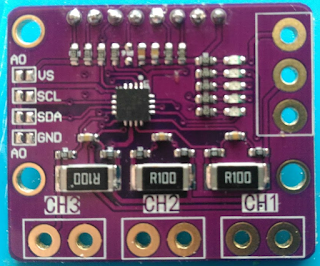CH32V307 : FPU + FreeRTOS
Toolchain/Clang
Time to enable the FPU!
I've modified the LLVM-embedded-toolchain-for-rv32 so that it builds both soft-ftp and hard-fp clang runtimes (it is a bit clunky but works).
FreeRTOS
WCH implementation
The FreeRTOS implementation saves this on the task stack :
- MEPC
- [FPU]
- Normal regs
- MStatus
[FPU] depends on a compilation switch.
It contains either all the FPU registers (the 32 of them) or nothing. Always.
This is problematic.
Saving all those registers is hitting the stack hard and it takes time.
Furthermore, that happens for all task switches even if the FPU is not used.
Conversely, if you dont save the FPU registers and use the FPU in 2 different tasks, you'll get data corruption.
Naive improvement
I implemented a very naive change using the FS bits in mstatus.
These FS bits can have 2 interesting values :
- FPU never used (Off, original, clean)
- FPU dirty (i.e. used at some point).
So, when the FS bits are "not used", you can skip saving/restoring the FPU registers for that task.
When they are "dirty", you need to save/restore the FPU registers
It is a bit naive, but is acceptable imho.
That involved changing the register layout a bit on the stack to this :
- MEPC
- MStatus
- [FPU]
- Normal regs
- ~ 0 impact when you dont use the FPU
- No corruption when you use them, but you pay the price



Comments
Post a Comment